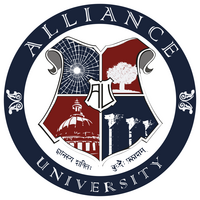Welcome to Gnanaganga – The Digital Repository of Alliance University’s Research!
The repository offers metadata for Alliance University Publications, striving to establish and maintain an archive of the University's academic contributions. It encompasses articles, book chapters, conference papers, and newspaper articles authored by faculty members at Alliance University. Additionally, it includes doctoral theses by research scholars and dissertation reports from students enrolled in various courses.
Important Links:
AU Website | AU Library Website | Library Catalogue | Remote Access | IRINS

Recent Additions
- Some of the metrics are blocked by yourconsent settings
Publication Cricket, cash, and crime: the IPL betting crisis and the need for a robust sports integrity framework(Springer Science and Business Media LLC, 2025-11-20)This paper critically examines the requirement for a holistic framework for sports integrity in India with special reference to the legal/legal challenges of illegal betting and match fixing in high stakes events like the Indian Premier League. It examines the shortcomings in the existing legislative instruments like the Public Gambling Act, 1867 and the Information Technology Act, 2000 in possessing the potential to proscribe different forms of corruption that appear in the field of sports. Based on the approach adopted by courts of law in other jurisdictions like the United Kingdom and Australia, the study argues that there needs to be a focus on a central governing authority and strong compliance mechanisms as well as multithreaded collaboration. The research urges for codification of anti-corruption, harmonized regulation of the state, technological surveillance of betting irregularities and player incentivisation to engender the rule of law in the sporting domain. This study further contributes to the discourse on reforming India’s legal architecture to enhance sports governance against the transnational and domestic illicit influences with the help of jurisprudential insights along with policy prescription. - Some of the metrics are blocked by yourconsent settings
Publication The Interrelation Between Subsidized Mortgage Lending and the Development of the Housing Construction Industry in Regional Economy(Springer Nature Switzerland, 2025)The paper examines the interrelation between the development of the housing construction industry and subsidized mortgage lending in regional economy. The construction sector has strategic importance at both national and regional levels, especially during economic crises. Regulation and support of the construction industry is one of the key tasks of economic policy. Such support is implemented using various tools, including stimulating demand in the housing market through subsidized mortgage programs. The authors identified several factors influencing the development of the housing construction industry in regional economies. In the quantitative part of the study, the authors conducted econometric modeling of factors affecting the development of the housing construction industry based on Russian regions’ data. The results showed varying relationships between the development of the construction sector and the effects of subsidized mortgage programs. On the one hand, subsidized mortgage lending can serve as an effective tool to support regional and national economies during recessions. On the other hand, the effectiveness of subsidized mortgage programs diminishes over time. Massive subsidized loans result in rising real estate prices outpacing inflation, negating the effect of lower interest rates on mortgages for certain population groups. This underscores the need to find alternative, more effective instruments of state support for the construction industry and fostering regional economic growth. #CSOC1120. - Some of the metrics are blocked by yourconsent settings
Publication Shared Worship to Segregated Rituals: Boycott of Dalits by Caste Panchayat in Anthravalli, Karnataka(2025-11)Once known for its communal harmony and joint participation, the Pattaladamma deity festival has become a site of caste-based exclusion orchestrated by the caste panchayat in a village in Karnataka. The field observations show how informal caste governance, through structures like the nyaya panchayat, overrides constitutional values and fosters structural untouchability under the guise of tradition. This article argues that ritual exclusion is not an isolated cultural aberration but a deliberate assertion of caste hierarchy that demands urgent legal and constitutional interventions. - Some of the metrics are blocked by yourconsent settings
Publication A Functional Assessment of the Present-Day Relevance of the Special Chambers of the International Court of Justice through a Comparative Lens(2025-09)The special chambers of the International Court of Justice (ICJ) hardly bear any critical legal significance now. Although a few of the chambers’ rulings were instrumental in shaping the international political, strategic and legal discourses, no special chambers were instituted for more than 20 years now, indicating further that disputing parties prefer a full court or ad-hoc international arbitral tribunals to a chamber court system. In view of the above, this chapter attempts to revisit the chamber court jurisprudence of the ICJ in light of the ad-hoc international arbitral tribunals. Invoking a functionalist perspective, the chapter compares the rulings of the special chambers with that of a few ad-hoc international arbitral tribunals. The objective of the chapter is to critically assess the role and contemporary relevance of the special chambers of the ICJ in rule adjudication. The principal argument resonating in this chapter is that the special chambers have lost their legal and functional relevance and therefore the requisite provisions of the statute of ICJ governing the chamber court jurisprudence need to be amended accordingly. The chapter uses secondary data and employs a doctrinal method to reach tentative findings. It invokes comparative and descriptive approaches to expand on the findings. - Some of the metrics are blocked by yourconsent settings
Publication Educational, Technological, Epistemic, and Pedagogical Architectures for an Ageing World(IGI Global Scientific Publishing, 2025-10-10)This chapter critically interrogates the integration of AI in geriatric care through the lens of education, positioning learning ecosystems as the foundational infrastructure for ethical, inclusive, and context-sensitive AI deployment. Drawing on global policy frameworks, cross-sectoral case studies, and pedagogical theory, it constructs a multi-tiered roadmap encompassing awareness, skill-building, and professionalisation across stakeholders. The chapter challenges technological determinism by reframing AI not as a neutral tool but as a socially contingent artefact shaped by educational design, equity concerns, and moral responsibility. Case studies from Japan, Finland, India, and South Korea demonstrate that successful AI implementation hinges less on technical sophistication than on educational imagination. It concludes by proposing lifelong, interdisciplinary, and justice-oriented learning strategies as prerequisites for meaningful AI adoption in ageing societies, asserting that without robust education, even the most advanced AI cannot ensure dignified and humane eldercare.
Most viewed
- Some of the metrics are blocked by yourconsent settings
Publication The Role of Media, Cinema, and Literature in Professional and Vocational Development(Anukarsh - A Peer-reviewed Quarterly Magazine, 2023-06)This research article explores the role of media, cinema, and literature in fostering professional and vocational development. The study aims to investigate how these forms of expression contribute to skill acquisition, knowledge enhancement, and personal growth, ultimately shaping individuals' professional trajectories. By exploring the impact of media, cinema, and literature on various aspects of professional development, such as skill acquisition, networking, personal branding, and cultural competence, this research highlights the significance of integrating these mediums into educational and training programs. The findings of this research indicate that media, cinema, and literature play a crucial role in skill acquisition and knowledge enhancement. Through exposure to diverse narratives and perspectives, individuals develop critical thinking skills, creativity, and problem-solving abilities. Media literacy skills enable individuals to critically analyse and interpret media messages, while cinema serves as an educational tool that enhances understanding of different cultures and perspectives. Literature, on the other hand, enhances communication skills, including reading comprehension, critical thinking, and verbal expression. The implications of this research are significant for educators, trainers, and policymakers. Integrating media, cinema, and literature into educational and training programs can create a more holistic and enriching learning environment. - Some of the metrics are blocked by yourconsent settings
Publication Onset of Ideal priming approach of Professional Courses of Study(Anukarsh - A Peer-reviewed Quarterly Magazine, 2023-06)Teachers may create a stimulating learning environment where students can develop important intellectual and social skills that will benefit them for the rest of their lives by using the correct teaching strategies. A teacher can assist students with a variety of interests, talents, and learning preferences by implementing one of the available frameworks. To increase your student's chances of succeeding in the classroom, whether you work in the education sector as a teacher or another professional, you might find it helpful to learn about cutting-edge instructional practices. Teaching techniques are approaches that teachers can use to make learning easier and pique students' motivation and interest in the material. Different teaching philosophies include game-based study, differentiated study, lecture-based method, technology-based pedagogy, group and individual study, inquiry-based study, kinesthetic study, game-based study, and expeditionary study. You can enhance your methods by trying out various teaching techniques while presenting the same course, communicating with other educators to acquire their insights, and being flexible. Due to the quick changes in the modern world, the Education System is currently dealing with a wide range of problems. An excellent teaching strategy helps students overcome their preconceptions and motivates them to study by putting them in a situation where they start to believe that they are the ones who come up with the solutions and who are responsible for the change. Professors that are respected both nationally and locally serve as ideal role models for educators who are enthusiastic about effective teaching methods of professional courses, providing them with ideas, insights, and the best teaching methods.(Journal of Advances in Medical Education & Professionalism v.4(4); 2016 Oct PMC5065908) - Some of the metrics are blocked by yourconsent settings
Publication Learning of Languages for Quality Teaching in Higher Education: Realization of NEP 2020 Vision(Anukarsh - A Peer-reviewed Quarterly Magazine, 2023-06)Language is one of the most marked, conspicuous, as well as fundamental characteristics of the faculties of man. Language is a system of sounds, words, patterns, etc., used by humans to communicate thoughts and feelings. Language is a system of communication which consists of a set of sounds and written symbols which are used by the people of a particular country or region for talking or writing in. The importance of language for man and society cannot be minimized. Language is not only a mode of communication between individuals but also a way for the expression of their personality. Man is remarkably distinguished from animals not only in his use of language but also in his thought process. This use has been termed by Chomsky as “the creative aspect of language; Chomsky suggests that “the normal use of language is innovative, in sense that much of what we say in the course of normal language use is entirely new, not a reception of anything that we have heard before and not even “similar” in “pattern” to sentences or discourse that we have heard in the past” (Chomsky, p.10). Language has its true being in conversation in the exercise and promotion and understanding between peoples. Language should not be a means to impose or transmit my will to another. Above all, language is a living process in which a community of life is lived out. It should be thought that human language as a special and unique living process, in that in linguistic communication, world and human worldview is disclosed. This disclosure, this function of language means that language does not draw attention to itself but transparent to the realities that are manifested through it. Since learning a language is part of our knowledge, it becomes one of the key factors in competitiveness. In the advanced industrial society of today, the basic knowledge of a single or more language has become indispensable. - Some of the metrics are blocked by yourconsent settings
Publication बंगाल कला शैली में कलाकारों के संयोजन शक्ति एवं स्वतंत्रता आन्दोलन में सहभागिता...(Anukarsh - A Peer-reviewed Quarterly Magazine, 2023-06) - Some of the metrics are blocked by yourconsent settings
Publication 'राष्ट्रीय शिक्षा नीति- 2020' के आलोक में भारतीय भाषा और व्यावसायिक शिक्षा...(Anukarsh - A Peer-reviewed Quarterly Magazine, 2023-06)
